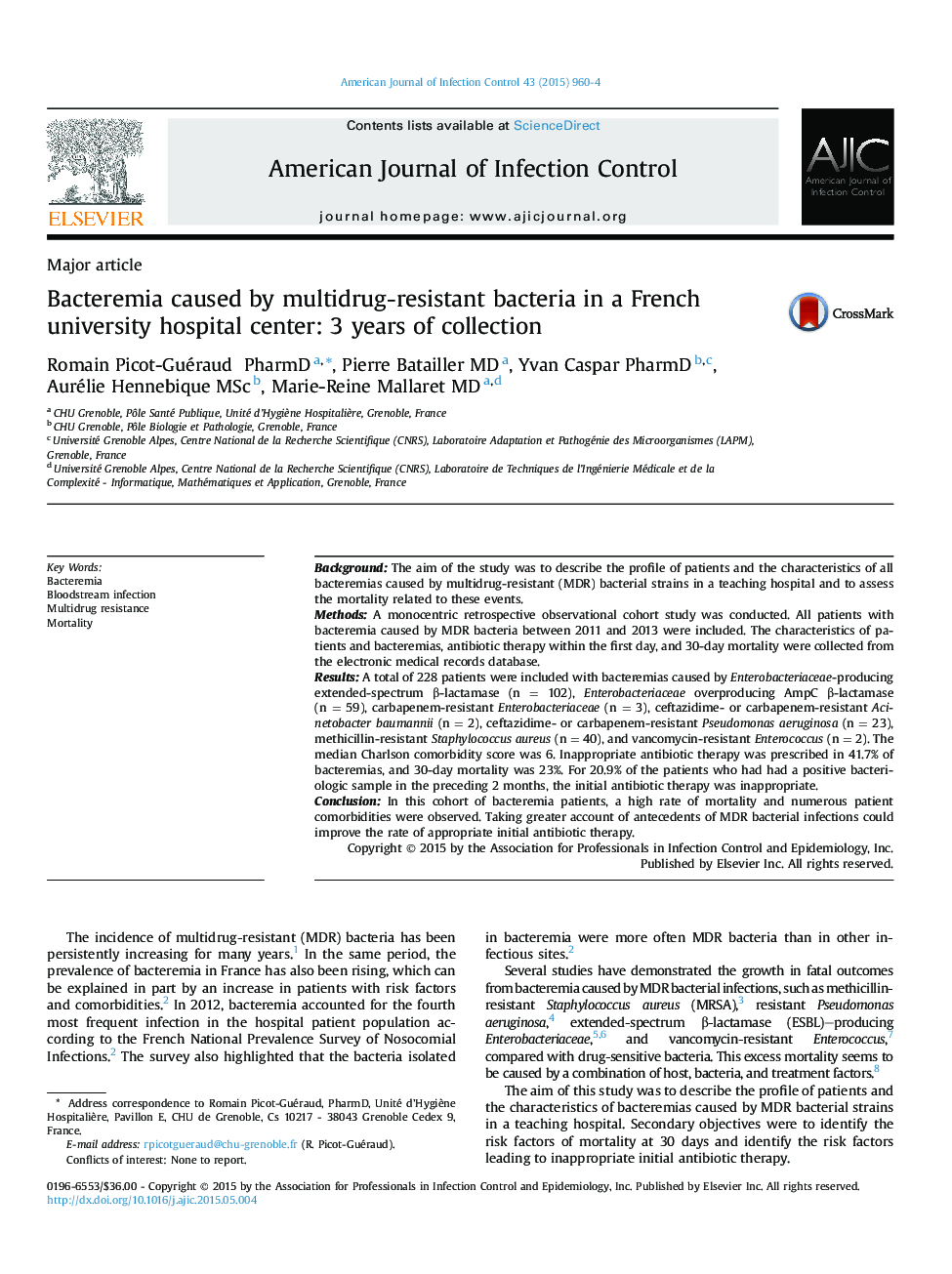| Article ID | Journal | Published Year | Pages | File Type |
|---|---|---|---|---|
| 2636722 | American Journal of Infection Control | 2015 | 5 Pages |
•Incidence of bacteremias caused by multidrug-resistant strains is increasing.•Three years of data about 249 bacteremias were retrospectively analyzed.•Inappropriate initial antibiotic therapy rate was high.•Taking greater account of antecedents of multidrug-resistant bacterial infections could improve the rate of appropriate initial antibiotic therapy.•Mortality at 30 days remains severe.
BackgroundThe aim of the study was to describe the profile of patients and the characteristics of all bacteremias caused by multidrug-resistant (MDR) bacterial strains in a teaching hospital and to assess the mortality related to these events.MethodsA monocentric retrospective observational cohort study was conducted. All patients with bacteremia caused by MDR bacteria between 2011 and 2013 were included. The characteristics of patients and bacteremias, antibiotic therapy within the first day, and 30-day mortality were collected from the electronic medical records database.ResultsA total of 228 patients were included with bacteremias caused by Enterobacteriaceae-producing extended-spectrum β-lactamase (n = 102), Enterobacteriaceae overproducing AmpC β-lactamase (n = 59), carbapenem-resistant Enterobacteriaceae (n = 3), ceftazidime- or carbapenem-resistant Acinetobacter baumannii (n = 2), ceftazidime- or carbapenem-resistant Pseudomonas aeruginosa (n = 23), methicillin-resistant Staphylococcus aureus (n = 40), and vancomycin-resistant Enterococcus (n = 2). The median Charlson comorbidity score was 6. Inappropriate antibiotic therapy was prescribed in 41.7% of bacteremias, and 30-day mortality was 23%. For 20.9% of the patients who had had a positive bacteriologic sample in the preceding 2 months, the initial antibiotic therapy was inappropriate.ConclusionIn this cohort of bacteremia patients, a high rate of mortality and numerous patient comorbidities were observed. Taking greater account of antecedents of MDR bacterial infections could improve the rate of appropriate initial antibiotic therapy.
